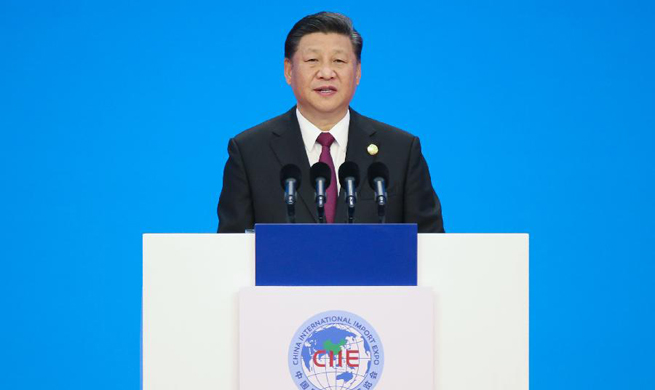SYDNEY, Nov. 8 (Xinhua) -- A drug used to treat cancer patients could also be a treatment option for a leading cause of stroke in young people, according to latest Australian-led research.
Researchers, using mice models, discovered that cancer drug Ponatinib inhibits the signaling pathway of a specific enzyme, a process which is one of the causes of a brain blood vessel condition linked to stroke, the Centenary Institute medical research facility said in a statement on Thursday.
The medical condition, Cerebral Cavernous Malformations (CCM), occurs when abnormal and dilated thin-walled blood vessels form clusters in the brain, altering blood flow, according to the institute. CCM affects as many as one in 200 people and can cause bleeding, epilepsy and stroke.
Currently, the only treatment for the condition is surgery, which is not always possible - highlighting the urgent need for non-invasive, pharmacological treatment options, said the institute.
The latest findings are a significant step in the quest to find a suitable treatment for the debilitating disease, said institute researcher Jaesung Peter Choi.
"Our next goal is to synthesize derivatives of Ponatinib for specific use in CCM to maximize its efficacy, and to minimize any side effects," said Choi, who also led the report on the study published in scientific journal Science Advances.
"CCM is a cruel disease, which many patients don't realize they have until they experience a seizure or a stroke. If successful in clinical trials, this drug could potentially save lives," said Xiangjian Zheng, the report's senior author and head of the institute's cell signaling laboratory.

















